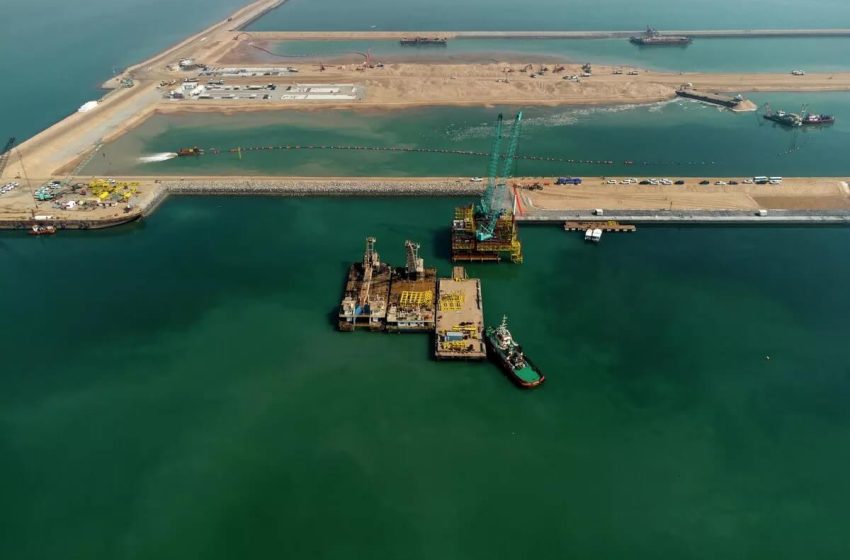Iraqi PM inspects the Al-Faw Grand Port project

An aerial view of the breakwater and the progress of the construction work in the Al-Faw Grand Port in Basra, Iraq. Photo: AFP
Baghdad (IraqiNews.com) – The Iraqi Prime Minister, Mohammed Shia Al-Sudani, inspected on Saturday the Al-Faw Grand Port in the southern Iraqi governorate of Basra to check the progress of the project.
Al-Sudani confirmed that there are negotiations with major international companies to manage the Al-Faw Grand Port, according to a statement issued by the Prime Minister’s Office (PMO).
The Iraqi Prime Minister reviewed the port’s five berths after the construction of the first berth and parts of the second were completed.
Al-Sudani explained that the government developed solutions for all obstacles and technical problems to carry out the project according to international standards, emphasizing that the project will play a significant role in transporting goods between Asia and Europe, particularly since it is linked to the Development Road project, the biggest infrastructure project in Iraq.
The Iraqi government is planning to set up an industrial city, which will be the biggest in the Middle East, as part of the Al-Faw Grand Port project, which is expected to be completed by 2025.
The Iraqi Ministry of Transport mentioned in March that plans have been proposed to develop ports in Iraq, the most important of which is the Al-Faw Grand Port, which is being developed by a Korean company.
The Al-Faw Grand Port is located on the Khor Abdallah Channel, near the mouth of Shatt Al Arab.
The Al-Faw Grand Port is being developed by Daewoo E&C, and the container terminal is part of its first phase that goes into operation, according to Maritime Gateway News.
The first phase will have five container shipping berths that can each accommodate ships of up to 23 thousand twenty-foot equivalent units (TEU).
When fully completed in 2038, the Al-Faw Grand Port, with 100 berths that can handle 7.5 million TEU annually, would overtake Dubai’s 67-berth Jebel Ali as the largest container port in the Middle East, Maritime Gateway News reported.
The first phase of the port, expected to be completed in 2028, is estimated to have an annual container handling capacity of four million TEU.
The $7 billion logistics project will rival the Suez Canal in Egypt as it will be linked through an overland route to Turkey by rail and would make the port city of Basra a gateway to Europe.
